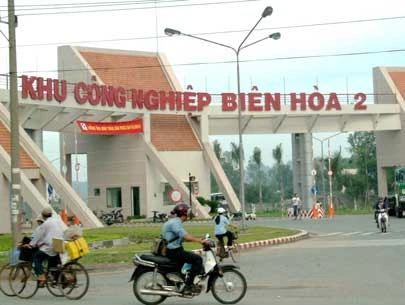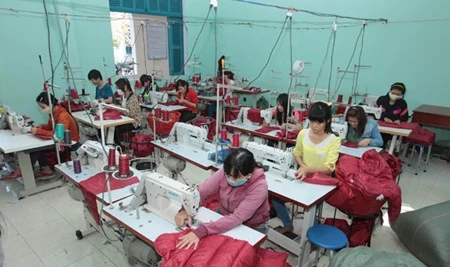Hanoi (VNA) – Nguyen Thi Lan Huong, Director of the Institute for Labour Science and Social Affairs, spoke to the newspaper Thoi bao Kinh te Viet Nam (Vietnam Economic Times) about the country's shortage of skilled workers.
* By late June, 2015, among unemployed people, there were 200,000 university or post university graduates. In your opinion, what are the factors leading to such a high unemployment rate among university graduates?
There are several factors. But the first factor that I want to mention is the poor matching between the human resources training system and the labour market.
Our economy has been in the process of switching from agriculture to industry. Normally speaking, with such a change in the national economy, Vietnam needs more workers at primary and secondary levels than those at university level.
To meet this requirement, Vietnam should restructure its policy on human resource development with more emphasis on vocational training rather than higher education. For example, in the recent national college/university entrance exam, up to three fourths of the candidates applied for university education.
As I have mentioned above, at present, we need more blue collar workers than white collar workers. But in reality, our higher educational system has turned out more white collar workers than blue collar workers. As a result, in Hanoi and HCM City, many university graduates have accepted work in jobs that do not match with what they learned in universities.
* In your opinion, what measures would help solve this problem?
Our economy is a market economy. And that economy makes its own adjustments between supply and demand.
But here I just want to mention three important factors.
Firstly, there is a need to raise awareness among the public about the different careers in the labour market and job seekers should know about the trends of the labour market.
Secondly, at the macro level, the Government should have a policy on vocational training and higher education. So when students finish their general school, some of them can go to vocational training school while others can apply for higher education if they have a better knowledge about the labour market trend in the future.
And finally, in the labour market, it is forecast that in the coming decade or so, the demand for university graduates will be just about 20 percent. That means, university student intake should be about 40 percent while the other 60 percent should go to vocational training colleges.
In other words, students who have done well in schools and achieved high marks at high school graduation exams should enroll in university while the remaining students should enroll in vocational training institutions or colleges.
* The ASEAN Economic Community will come into being soon and there will be a movement of high skilled workers among the ASEAN community. Do you think such a movement will affect Vietnamese workers' job opportunities?
When we talk about the labour market, there are three important outputs: job, income and unemployment. So when we talk about the benefits of joining the ASEAN Economic Community, we have to take into consideration these three outputs.
Regarding the movement of high skilled workers from other ASEAN nations into Vietnam, I should say this is a positive signal. As we all know that a highly skilled worker can create many jobs for other people. And this is the essence of the concept of connectivity. Of course, high skilled workers from other ASEAN nations come to work in Vietnam, no doubt they will help the work that they engage in to further develop.
In my opinion, the ASEAN Economic Community will provide better jobs with stable income to Vietnamese workers, particularly those who have acquired high professional skills.-VNA























